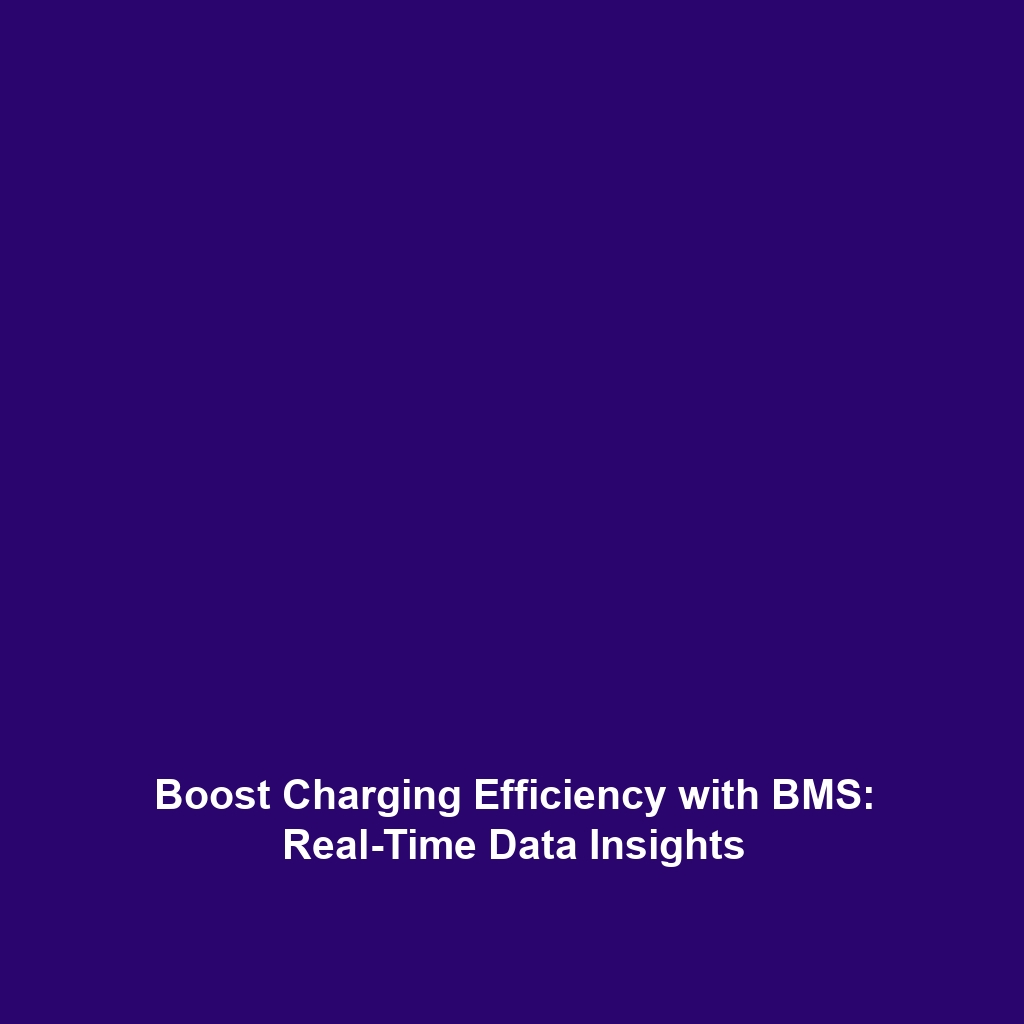BMS Systems: Enhancing Charging Efficiency and Predictive Maintenance in Battery Technology
Battery Management Systems (BMS) are integral to modern Battery Technology, providing a robust framework for managing the charging and discharging of batteries. These systems not only ensure the safety and longevity of batteries but also track real-time data to significantly improve charging efficiency and predict maintenance needs. In a world that increasingly relies on efficient energy storage solutions, understanding how BMS systems operate can provide insights into future developments in battery technology.
Key Concepts Behind BMS Systems
BMS systems serve multiple functions that are essential for maintaining battery performance. At its core, a BMS performs the following key functions:
- Voltage Management: Monitoring each cell’s voltage to prevent overcharging and over-discharging.
- Temperature Control: Tracking operational temperatures to avoid thermal runaway.
- State of Charge (SOC) Tracking: Estimating the remaining charge to optimize usage.
- Data Logging: Collecting real-time data that facilitates insights into battery performance.
These functionalities enhance the charging process by enabling precise control over how energy is supplied to the battery, while predictive maintenance tools help analyze trends that may indicate future battery failures. This predictive capability is particularly important in industries relying on large battery deployments, such as electric vehicles and renewable energy systems.
Applications and Real-World Uses
BMS systems tracking real-time data have a wide array of applications in Battery Technology. Some notable examples include:
- Electric Vehicles (EVs): BMS plays a critical role in managing battery packs, enhancing the lifespan of batteries, and improving efficiency during charging.
- Renewable Energy Storage: BMS helps in stabilizing energy storage from solar panels or wind turbines, ensuring optimal discharge rates.
- Consumer Electronics: Smartphones and other portable devices utilize BMS to enhance battery safety and performance.
The integration of real-time monitoring and efficiency improvements not only enhances user experience but also promotes energy sustainability.
Current Challenges in BMS Technology
Despite the advancements, there remain several challenges and limitations in the study and application of BMS systems:
- Complexity: The intricacies of BMS systems require expertise and sophisticated technology for effective implementation.
- Data Security: With increased data collection, safeguarding sensitive battery usage data becomes a concern.
- Cost: Advanced BMS solutions can be expensive, which may deter widespread adoption in lower-end markets.
Future Research and Innovations
The field of Battery Management System technology is ripe for innovation. Future research and development could lead to:
- AI Integration: Using artificial intelligence algorithms to enhance predictive analytics for battery performance.
- Advanced Sensors: Developing refined sensor technology to gather more accurate real-time data.
- Enhanced Data Security Measures: Creating robust frameworks for data protection to enhance user trust.
These innovations promise to further enhance the capabilities of BMS systems and improve their impact on Battery Technology.
Conclusion
BMS systems, by tracking real-time data, are revolutionizing the way we manage batteries, ensuring improved charging efficiency and predicting maintenance needs. The continuous evolution of these systems will not only enhance Battery Technology but also contribute to a more sustainable energy future.
For more detailed insights into battery innovations and management systems, check out our articles on Battery Care Best Practices and Future of Battery Technology.
